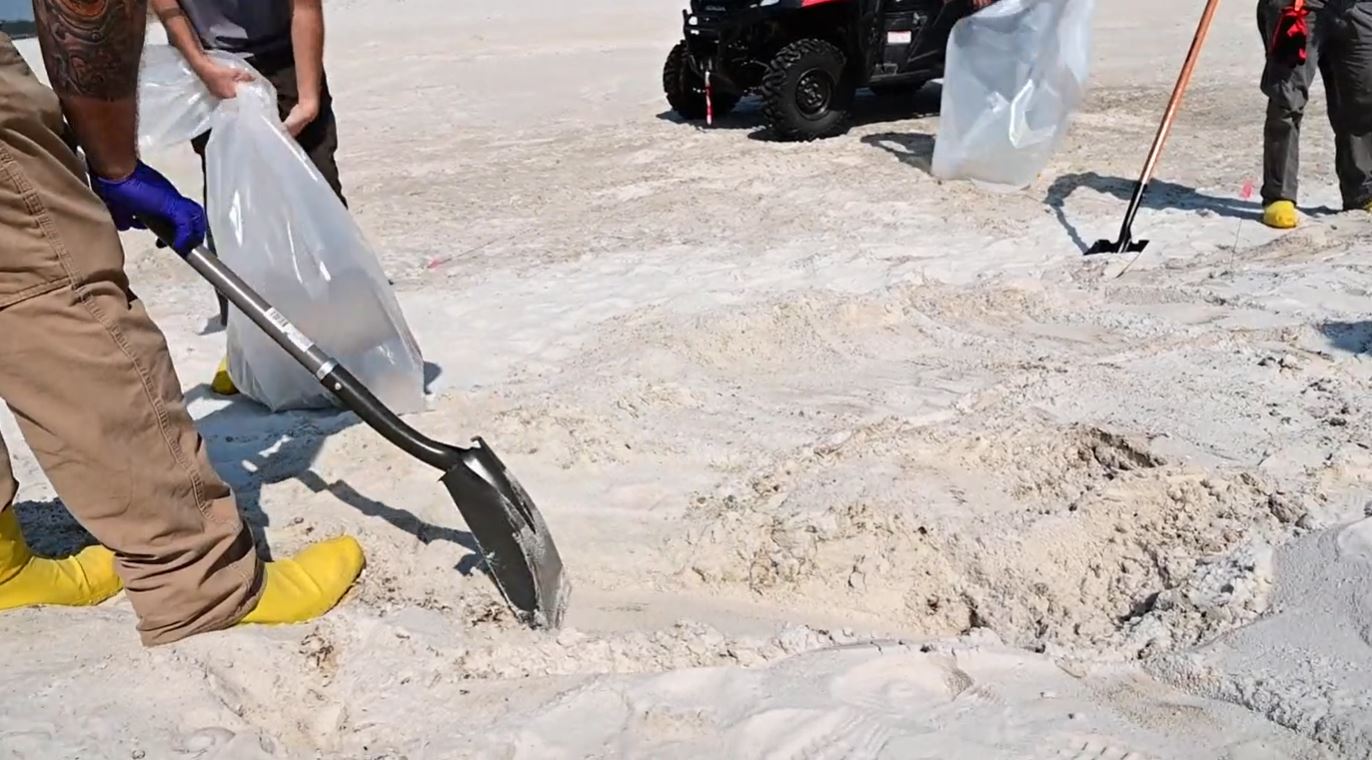
The Coast Guard federal on scene coordinator and the state on scene coordinator from the Florida Department of Environmental Protection, in consultation with Federal Trustees: Department of Interior’s U.S. Fish and Wildlife Service; National Oceanic & Atmospheric Administration, and the National Park Service, coordinated efforts to remove weathered oil, discovered after Hurricane Sally, from a half-mile area of Johnson Beach, Florida, Thursday.
The Coast Guard assessed and collected oil samples from the area, which were sent to the Coast Guard Marine Safety Laboratory in New London, Connecticut, for chemical analysis to identify the source of the oil. A shoreline cleanup assessment team surveyed the degree of pollution along the shoreline to determine acceptable cleanup operations and procedures to reduce the disturbance to the environmentally sensitive area.
“Our engagement with the trustees has been invaluable,” said Cmdr. Kelly Thorkilson, Coast Guard Hurricane Sally incident commander. “Throughout our response we’ve worked closely with our partner agencies to identify environmentally sensitive areas, such as Johnson Beach, and prioritized our response efforts based on reports of pollution in those areas. We swiftly coordinated the recovery of oil, which eliminated the pollution threat, in a manner that leaves sensitive habitats intact and increases the ability of reconstitution.”
The impacted area is located on federally designated, critical habitat and marine protected areas. The affected area is also culturally important to federally recognized tribes. Best management practices to minimize impact to these areas included: preventing vehicular and pedestrian traffic from mixing the oil deeper into the sand and manual removal of oily sand.
“Recovery and restoration efforts in response to disasters are dependent on federal, state and local agency coordination. Since Hurricane Sally made landfall, DEP has worked with the Coast Guard to assess the varying degrees of oil affecting the coastline so we could determine the most effective cleanup strategy to protect these coastal ecosystems,” said Florida’s Department of Environmental Protection Sec. Noah Valenstein. “Thank you to our partners for your continued dedication to protecting Florida’s coastlines. We are stronger together in the face of disaster.”
There have been no reports of impacts to wildlife on Johnson Beach. Report oiled wildlife to the Wildlife Response Group at: 757-761-9984. Please do not attempt to rescue oiled wildlife and leave rescues to trained individuals to avoid inflicting further stress and trauma on oiled animals.
To report pollution, please contact the National Response Center at 1-800-424-8802.





























